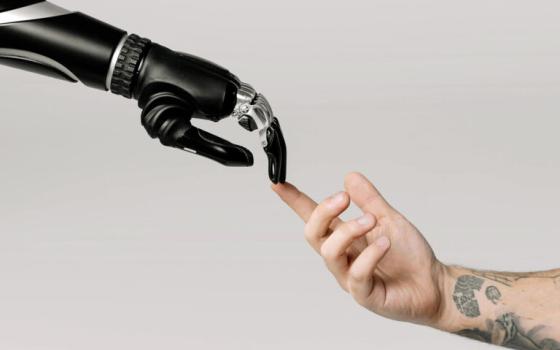New studies show that humans are naturally optimistic -- it's apparently become one of our survival skills as a species. How then to explain the continued whining of ideologically-driven extremists who are always miserable living in the real world? Shouldn't natural selection have culled them from the human herd centuries ago?
My daughter -- a high school senior -- set me down this path a couple of days ago. She was telling me about a discussion in her religion class, centered on research featured in TIME magazine last spring. The article looked at an assembly of studies over the past several years that showed a "bias towards optimism" within the human family.
In fact, even when we are pessimistic about the overall world, we remain upbeat about our own futures. A study in 2007 showed that 70 percent of respondents felt people in general were less successful than in their parents' day -- but also showed that 76 percent of those same respondents were more upbeat about their own futures.
Sociologists see this as a survival-of-the-fittest feature: a hard-wired belief that things will generally turn out fine allows humans to crawl out of their caves and explore the wider world. It allows us to experiment and discover, to research and question. At its most basic, optimism compels us to get up and get out of bed when other indicators keep telling us to pull the covers over our heads.
But then there is that fringe of the human family called ideologues: they keep looking for a perfect world, and live in constant disappointment with what they find every day. That let-down easily turns into darkness and pessimism. This is a malady on both ends of the political spectrum: at the height of the Reagan Revolution, in 1987, a bestseller among the more liberal chattering classes was an academic tome by historian Paul Kennedy, called "The Rise and Fall of Great Powers." In it, Kennedy explored the history of empires that had over-extended their reach economically and militarily, only to be weighed down by obligations as more nimble nations raced ahead and replaced them.
To anti-Reaganites, this was milk-and-honey: a historical underpinning for their feeling that "morning in America" masked a brewing catastrophe. That was not to be -- but this does not let the right off the hook. History also tell us that no one surpasses the American right when it comes to ringing alarm bells of decline and despair at the slightest deviation from the rules of their hoped-for utopia.
I was in my local bookstore this weekend, and stumbled upon a lovely title sitting in the hardcover "non-fiction" bestseller shelf: "After America: Get Ready for Armageddon." The upbeat, optimistic book cover featured a corpse on a coroner's slab, with a toe-tag that read "Uncle Sam." An Amazon search helpfully informed me that customers who have bought this book also bought sunshine-drenched volumes as Dick Cheney's memoir "In My Time" and Ann Coulter's "Demonic: How the Liberal Mob is Endangering America."
And these books are, by some measures, bestsellers. Clearly the "optimism bias" can't explain it -- instead, I turn to an older theory, one my Bronx mother labeled "misery loves company." There is a certain thrill in knowing that you are not alone in your dark views; books like these validate your pessimism in a primal way -- and when you see them become bestsellers, you may actually feel something akin to ... hope. If enough people think exactly the way you do, maybe utopia will arrive -- yes, yes, it will come, and things will be better.
Though, of course, only after they get much, much worse.



